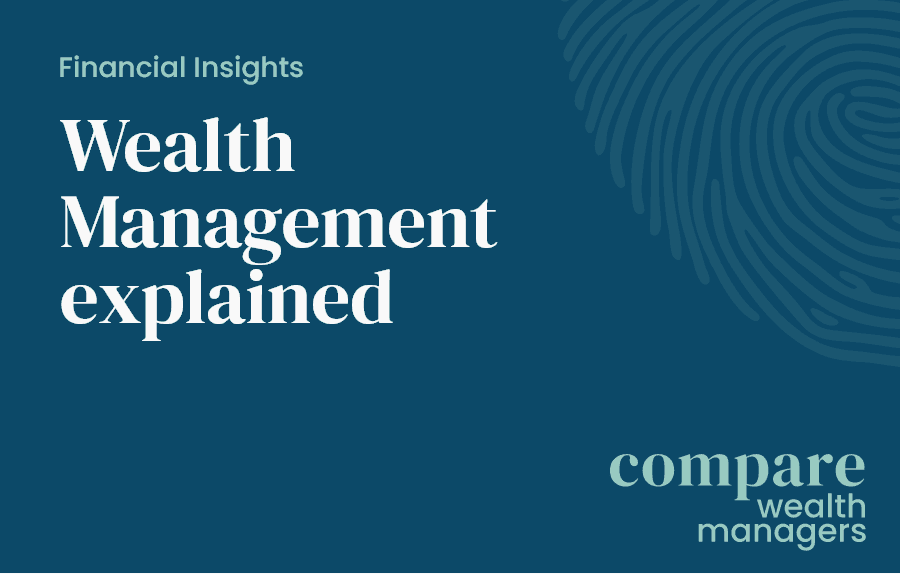When it comes to managing your finances, there are a variety of professionals available to help you. Independent Financial Advisors (IFAs) and Wealth Managers are two of the most in demand. However, they both provide different approaches and services. Do you know which one is right for you?
If you google “financial advisor”, many different titles appear on the screen: consultant, planner, manager, representative. Searching for the right person to help you make the most out of your finances can be overwhelming and getting it wrong may cost money as well as time. In this article, we focus on two of the most common advisors people look for when organising their finances in the UK: independent financial advisors (IFAs) and wealth managers.
Even though both offer financial consultation services, the most recognisable difference between a wealth manager and a financial advisor is the type of clients that each works with. Some financial advisors are willing to work with just about anyone wanting financial advice or help with their money management. A wealth manager generally works with people who have a large sum to invest, but not exclusively. Let’s have a closer look at what both can offer and which one can help you get the best out of your finances.
Independent Financial Advisors (IFAs)
Independent financial advisors are professionals who provide advice on a wide range of financial products and services. They are typically self-employed or work for smaller firms and do not have any ties to specific financial institutions. This means that they are free to recommend any financial product or service that they believe is in their client's best interest. However, in many cases, an IFA will outsource the management of their customers' portfolios to wealth managers (who are referred to as discretionary fund managers).
Some of the benefits of working with an IFA are that, since they are not tied to any specific financial institution, they can offer independent advice. They offer a wide range of products from different providers and, even though they often work with a wide number of clients, they can offer a personalised service. On the other hand, IFAs typically charge fees for their services, which can be higher than other types of advisors. Being small firms, they also have limited resources and may not offer some of the services that Wealth Managers offer, such as tax or estate planning.
Wealth Managers
Wealth managers are professionals who specialize in managing the assets of different individuals. They typically work for larger financial institutions and have access to a wide range of resources and services. Many of their clients are high-net-worth individuals, but they regularly offer services for all types of economic status as well.
They offer a wide range of services, including investment management, tax planning, estate planning, and more. Wealth managers also have access to a wide range of resources, including research and analysis, that may not be available to smaller IFAs. But the biggest advantage may be that wealth managers have specialized expertise in managing different types of portfolios and may be better suited to handle complex financial situations.
David Henry, Investment Manager with Quilter Cheviot, observes: “For individuals with large amounts of investable wealth, ensuring appropriate structuring and risk management is essential. Mis-steps in investment strategy or how assets are allocated will be more expensive to individuals with large asset bases. On top of the natural investment expertise that a wealth manager offers, they should be available to help clients through periods where markets are volatile, to act as a source of support to ensure that the plan is stuck to even when emotions are running high.”
Since wealth managers usually work with high-net-worth individuals, fees may appear to be higher, however, these fees are usually charged as a percentage of the amount invested. Wealth managers often work for a financial institution, so they may be restricted to offering the services that this company provides – but not always. Despite this, many wealth managers build up long and trusted relationships with their clients. “I often say to clients that it is my job to ensure that they do not need to get rich twice”, Herny adds.
What are the costs involved when getting financial advice from them?
Fees across the industry vary widely. Both wealth managers and financial advisors can charge an hourly fee for their consultation work, as well as an ongoing charge expressed as a percentage of assets under management (AUM). The rate card for both IFA and wealth managers is generally 1%. However, this can vary depending on what you have in the portfolio. At the same time, there are some financial advisors that are fee-based. This means that they could receive a commission if they advise you to buy certain securities, whereas wealth managers don’t earn commissions.
Which one is right for me?
The decision between working with an IFA or a wealth manager ultimately depends on your individual needs and preferences. If you are looking for independent advice, an IFA may be the right choice for you. Nonetheless, the fact that Wealth Managers work for larger financial institutions means that they may receive a level of support that an IFA may not be able to provide.
If you require comprehensive financial services and have complex financial needs, a wealth manager may be better suited to your needs.





